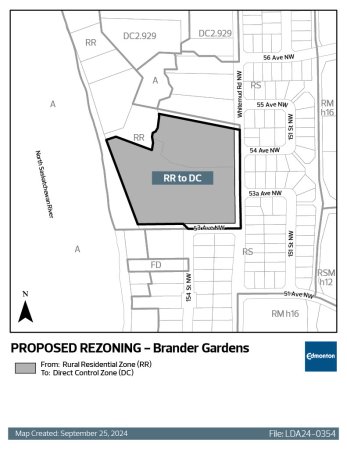Viral Podcast Ignites Firestorm: Psychologist Vs. Experts On Daycare's Impact

Table of Contents
The Psychologist's Argument: Potential Negative Impacts of Daycare
The psychologist in the podcast presented a compelling case for considering the potential downsides of daycare, focusing on several key areas.
Social-Emotional Development Concerns
The psychologist argues that extensive time in daycare, particularly in low-quality settings, can hinder the development of secure attachment. This can manifest as:
- Insecure attachment: Children may struggle to form strong, trusting bonds with caregivers, leading to emotional insecurity and difficulties forming healthy relationships later in life.
- Increased aggression or anxiety: Some studies suggest a correlation between daycare attendance and heightened aggression or anxiety in certain children, though this is often linked to factors like daycare quality and the child's temperament.
- Disrupted routines: Frequent changes in caregivers and daily schedules can be unsettling for young children, impacting their sense of security and predictability.
Cognitive Development Questions
While acknowledging some benefits, the psychologist questioned whether daycare environments consistently provide the individualized learning experiences that optimal cognitive growth requires. Concerns raised include:
- Overstimulation: Busy daycare environments can lead to sensory overload for some children, hindering their ability to focus and process information effectively.
- Insufficient individualized attention: High child-to-staff ratios can limit the amount of personalized attention each child receives, potentially hindering their learning and development.
- Less parent-child interaction: Reduced time spent with primary caregivers limits the unique learning opportunities offered through parent-child interaction, such as one-on-one reading and storytelling.
Impact on Child Health
Another area of concern highlighted by the psychologist was the increased risk of illness associated with daycare attendance. This includes:
- Higher exposure to contagious diseases: Daycare centers are environments where germs easily spread, leading to a higher frequency of infections like colds, flu, and other illnesses.
- Weakened immune systems (in some cases): While daycare can sometimes help build immunity, frequent exposure to illness can also potentially weaken a child’s immune system in certain situations, particularly for children with pre-existing health conditions.
- Health and safety standards: The psychologist stressed the importance of carefully evaluating the health and safety standards maintained by daycare facilities to minimize these risks.
Expert Rebuttal: The Benefits of High-Quality Daycare
Childcare experts countered the psychologist’s arguments, emphasizing the numerous benefits of high-quality daycare when chosen carefully.
Socialization and Peer Interaction
Experts highlighted that daycare provides unparalleled opportunities for social-emotional growth.
- Developing social skills: Daycare offers a rich environment for children to learn crucial social skills, like sharing, cooperation, conflict resolution, and empathy.
- Peer interaction: Interaction with peers helps children learn to negotiate, compromise, and navigate social situations, skills vital for success in school and beyond.
- Improved social confidence: Many children attending high-quality daycare show improved social confidence and stronger social skills compared to their peers who are primarily cared for at home.
Cognitive Stimulation and Early Education
Many daycare centers offer structured learning programs designed to boost cognitive development.
- Early childhood education: Exposure to early childhood education, often provided in daycare settings, has been linked to better academic outcomes in later years.
- Stimulating learning environment: A well-designed daycare environment provides a stimulating setting for learning through play, exploration, and interaction with trained professionals.
- Improved academic performance: Studies consistently demonstrate a positive correlation between attending high-quality daycare and improved academic performance in kindergarten and beyond.
Economic and Social Factors
Experts acknowledged that daycare is often a necessity for working parents, providing significant economic and social benefits.
- Supporting working parents: Daycare allows parents to pursue education or employment opportunities, improving their family's economic stability.
- Reduced financial strain: Access to affordable, quality daycare can alleviate the financial strain on families, preventing hardship and promoting economic well-being.
- Social support networks: Some daycare centers create supportive communities for both children and parents, fostering connections and a sense of belonging.
The Importance of Choosing the Right Daycare
The daycare impact debate highlights the crucial role of choosing the right daycare facility.
Evaluating Daycare Quality
Finding a high-quality daycare is paramount. Key considerations include:
- Qualified staff: Look for staff with appropriate training, experience, and certifications.
- Appropriate child-to-staff ratios: Lower ratios ensure each child receives sufficient attention and care.
- Nurturing environment: The environment should be safe, clean, stimulating, and emotionally supportive.
- Accreditations and licensing: Check for relevant accreditations and licenses to ensure compliance with safety and quality standards.
Parental Involvement
Regardless of daycare choice, active parental involvement is crucial for a positive experience.
- Maintain strong parent-child bonds: Prioritize quality time with your child outside of daycare to strengthen your relationship.
- Communicate regularly with the daycare providers: Stay informed about your child's progress and any concerns.
- Participate in daycare activities: Attend events and participate in your child's learning experiences.
Conclusion
The daycare impact debate is multifaceted. While legitimate concerns exist regarding potential negative effects, high-quality daycare offers significant benefits. The key is to carefully evaluate daycare options, prioritize quality, and maintain strong parent-child bonds. Ultimately, the best approach is to weigh the individual needs and circumstances of each family and make an informed decision. Continue the conversation about the daycare impact debate by sharing your thoughts and experiences!

Featured Posts
-
 Weight Watchers Bankruptcy A Consequence Of The Weight Loss Drug Market
May 09, 2025
Weight Watchers Bankruptcy A Consequence Of The Weight Loss Drug Market
May 09, 2025 -
 Trumps Potential Uk Trade Deal What To Expect
May 09, 2025
Trumps Potential Uk Trade Deal What To Expect
May 09, 2025 -
 Whittier Rally Supports American Samoan Family Facing Voter Fraud Charges
May 09, 2025
Whittier Rally Supports American Samoan Family Facing Voter Fraud Charges
May 09, 2025 -
 Alpines Young Driver Colapinto Undergoes Private Monza Test Details Revealed
May 09, 2025
Alpines Young Driver Colapinto Undergoes Private Monza Test Details Revealed
May 09, 2025 -
 Applauding Anchorage Local Medias Impact On The Arts Community
May 09, 2025
Applauding Anchorage Local Medias Impact On The Arts Community
May 09, 2025
Latest Posts
-
 Mariah The Scientist Returns With New Album Burning Blue
May 09, 2025
Mariah The Scientist Returns With New Album Burning Blue
May 09, 2025 -
 Mariah The Scientists Burning Blue A Highly Anticipated Return
May 09, 2025
Mariah The Scientists Burning Blue A Highly Anticipated Return
May 09, 2025 -
 Edmontons Nordic Spa Closer To Reality Following Council Vote
May 09, 2025
Edmontons Nordic Spa Closer To Reality Following Council Vote
May 09, 2025 -
 Edmonton Nordic Spa Development Council Approves Key Rezoning
May 09, 2025
Edmonton Nordic Spa Development Council Approves Key Rezoning
May 09, 2025 -
 Potential Release Date For Young Thugs Uy Scuti Revealed
May 09, 2025
Potential Release Date For Young Thugs Uy Scuti Revealed
May 09, 2025
